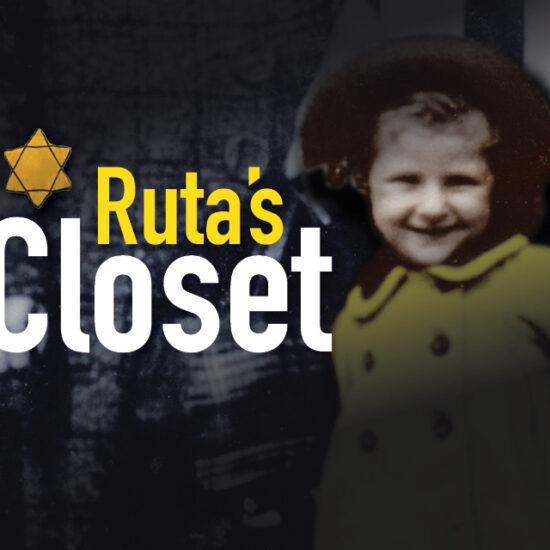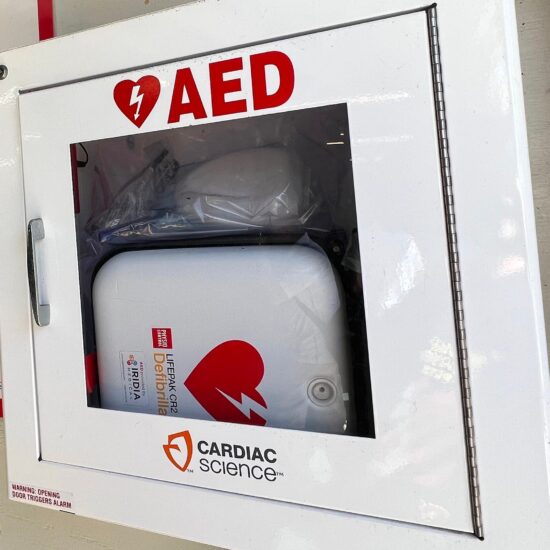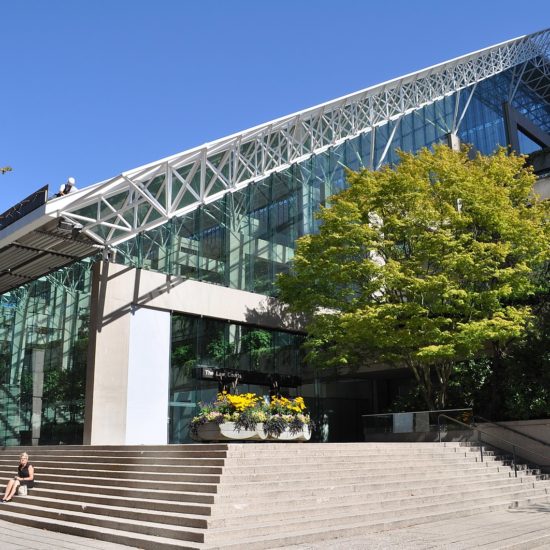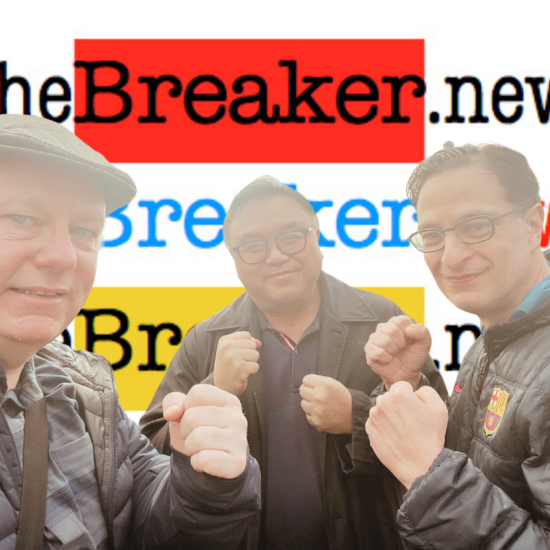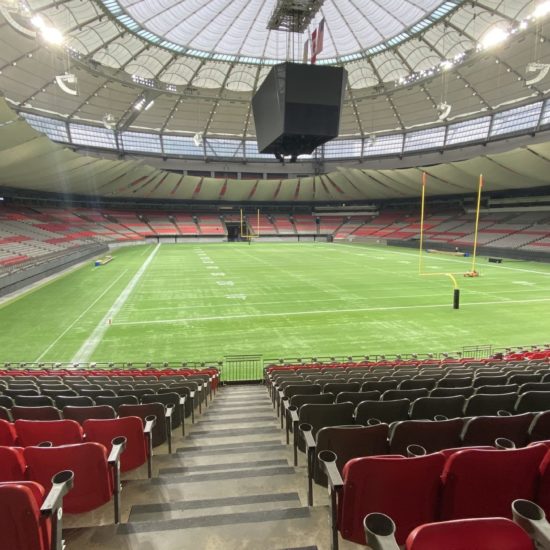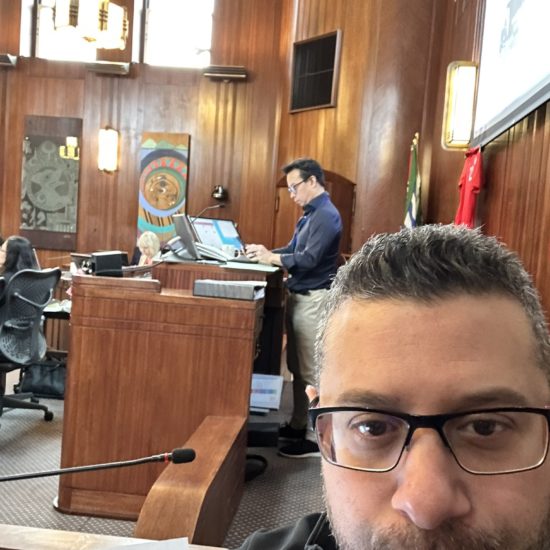
Bob Mackin
FIFA did not give its official seal of approval to the artificial turf field where the United States won 2015’s Women’s World Cup until almost four months after the final, theBreaker.news has exclusively learned.
Canada 2015 was the first top-level FIFA tournament played entirely on artificial turf, which sparked global media criticism and pre-tournament protests from American players. The France 2019 Women’s World Cup, which ends July 7, is on grass.
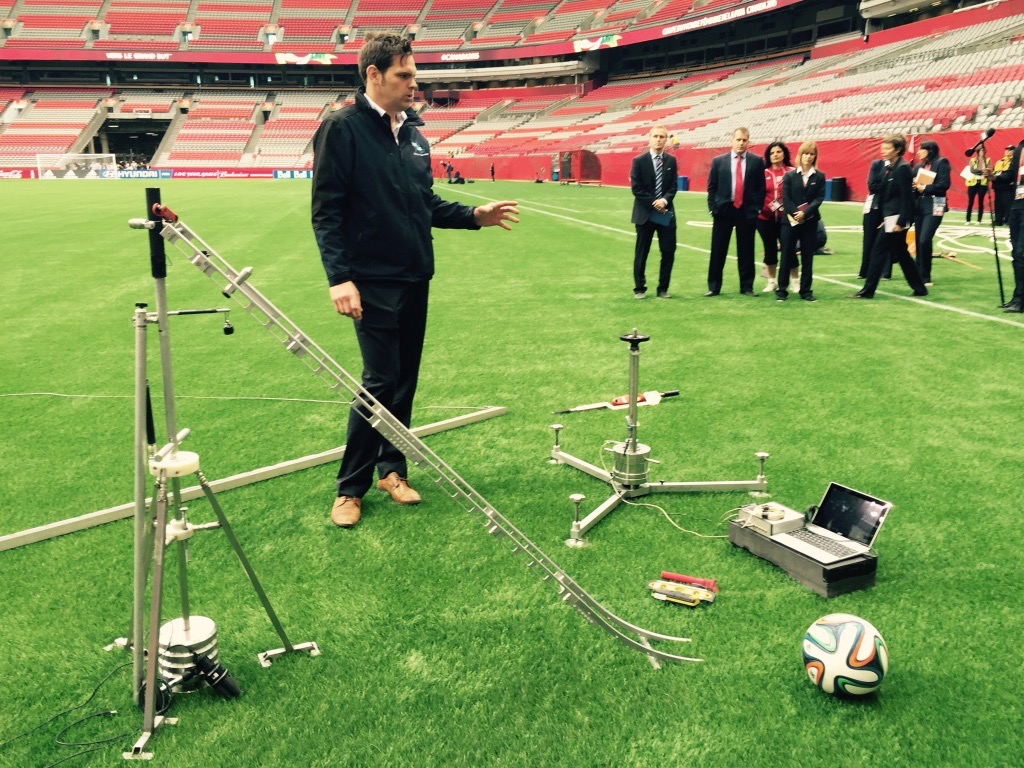
FIFA contractors showed-off artificial turf testing equipment at B.C. Place during Canada 2015 (Mackin)
The public-owned company that operates B.C. Place Stadium, British Columbia Pavilion Corporation, said that “inspection and confirmation of compliance was verbally issued on June 6, 2015” in a covering letter for documents released under the freedom of information law.
That was three days after FIFA contractor Sports Labs demonstrated the artificial turf testing program to reporters on June 3, 2015. Four years later, documents suggest that damage control photo op was just for show.
Montreal-based testing firm Labosport’s June 19, 2015 report was a generic evaluation of the German-made Polytan Ligaturf RS+ CP WCE 260 W ACS 90 Bionic Fibre turf product. The report was not specific to the B.C. Place installation of that product.
Labosport’s followup technical report, titled “Gmax Tests on a synthetic field installed at B.C. Place, Vancouver B.C.,” was dated Nov. 10, 2015 and based on a Nov. 2, 2015 inspection of the field at B.C. Place.
Two days after the test, on Nov. 4, 2015, FIFA finally issued the field certificate. It was signed by then-president Sepp Blatter.
The Blatter-signed field certificate said the Polytan Ligaturf had been “certified according to the FIFA Quality Program for Football Turf – 2 Star” from June 6, 2015 to June 5, 2016.
The timing of the certificate raises more questions. Corruption-plagued Blatter was provisionally suspended by FIFA’s ethics committee on Oct. 7 of that year. He was finally turfed from office before Christmas 2015 and banned from FIFA activities for eight years, a penalty that was eventually reduced to six years.
Neither Sports Labs nor FIFA responded for comment by deadline.
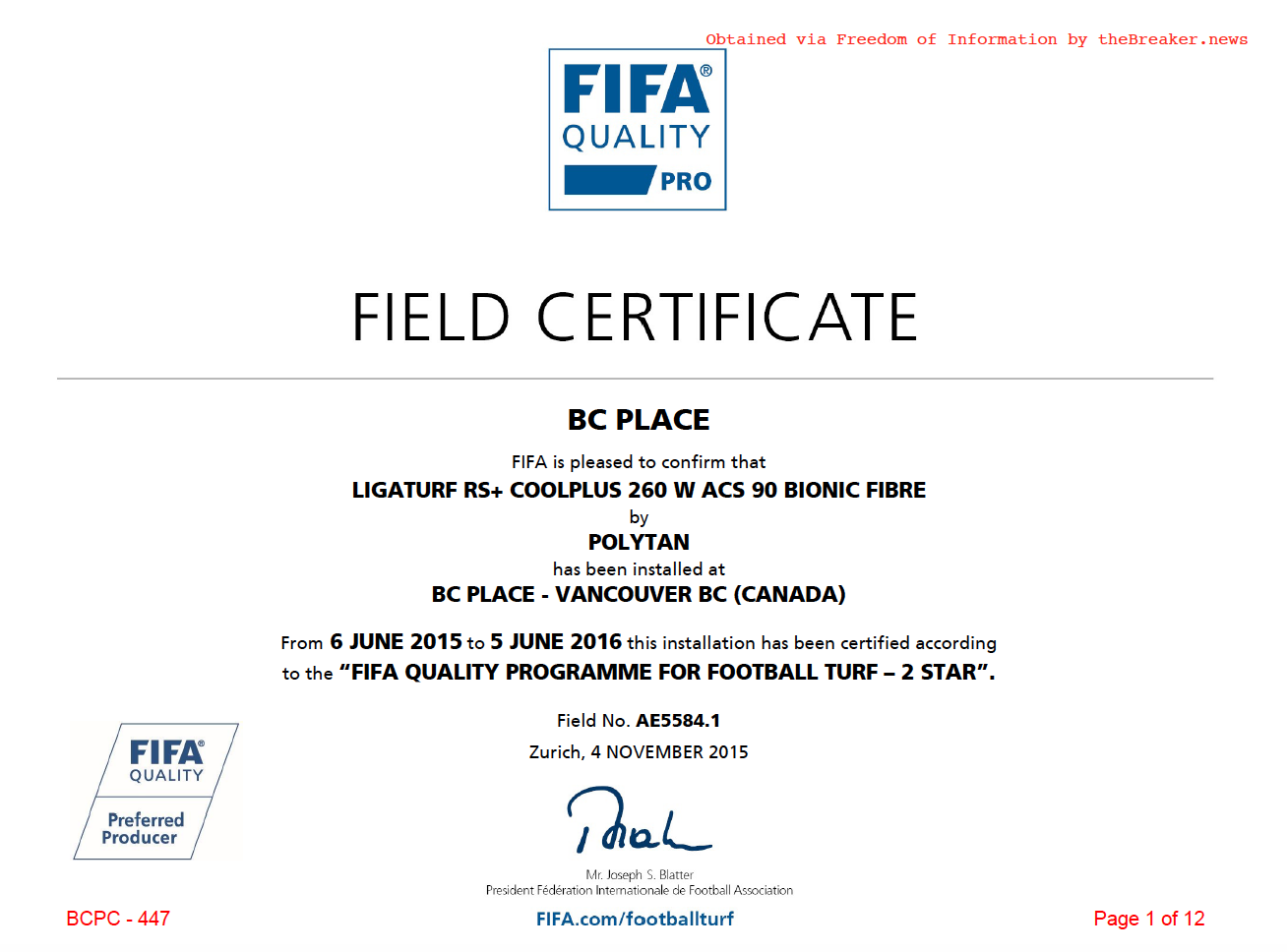
FIFA certified B.C. Place four months after the Canada 2015 final (FIFA/PavCo)
During Canada 2015, FIFA repeatedly told reporters that B.C. Place’s new pitch had been certified to the 2 Star standard for the highest level of international play.
Multiple sources confirmed that the new B.C. Place field had failed ball rebound tests. Organizers brought in high-intensity water sprinklers and a steamroller to compact the sand infill. They also applied blocks of ice to induce hardening of the surface.
FIFA declined to publicly disclose the actual test results during the tournament. It referred a reporter to manufacturer Polytan, whose CEO, Markus Deimling, said the pitch met FIFA requirements. Both Deimling and Sports Labs refused to show proof. Sports Labs cited a confidentiality clause in its contract with FIFA.
The host Canadian Soccer Association chose to stage the tournament on artificial turf in six stadiums, four of which were the home fields of Canadian Football League teams.
The plastic pitches were more trouble than they were worth. At Canada’s opening midday match in Edmonton, field temperature was measured at 50 Celsius.
U.S. captain Abby Wambach complained to reporters that the $1.327 million B.C. Place pitch, which was installed weeks before the tournament’s June 6 kickoff, caused “weird bounces” of the ball. Japanese midfielder Aya Miyama said “dribbling was difficult.”
FIFA’s post-tournament technical report confirmed those observations and found the speed of passes at games across all Canada 2015 venues averaged 6 kilometres-per-hour slower than the 2011 tournament on grass in Germany.
FIFA chose its words carefully in the August 2015-issued technical report. Women’s World Cup committee chair Lydia Nsekera said that all six venues featured “FIFA recommended 2 Star football turf.”
The artificial turf was not the only challenge for players in the July 5, 2015 final. The B.C. Place retractable roof was open on a humid day when smoke from area forest fires filtered the sunshine. Carli Lloyd led the U.S. to a 5-2 win over defending champion Japan. Lloyd and the U.S. are aiming for a repeat on July 7 in France against Netherlands.
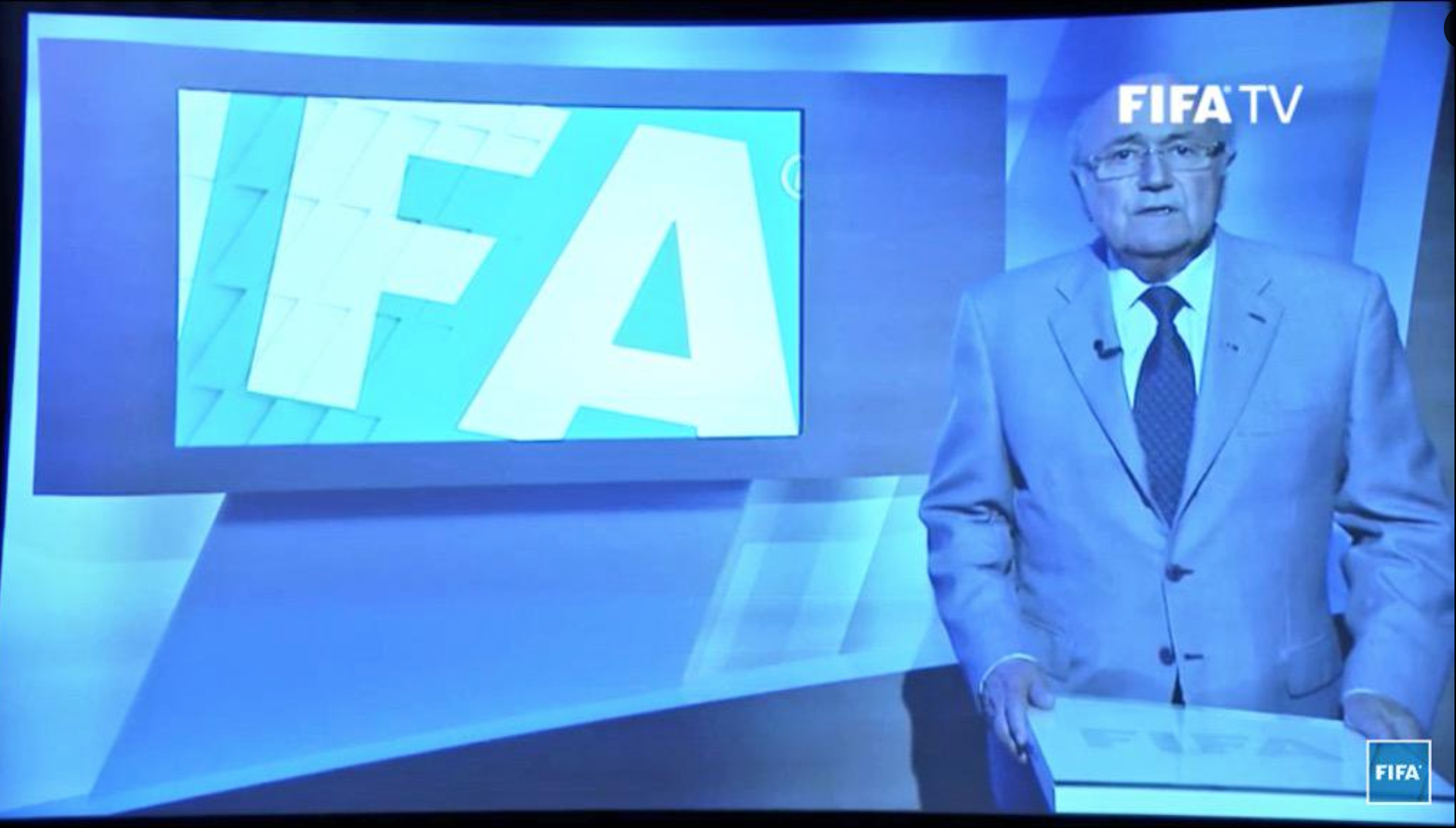
Sepp Blatter’s video greeting to Canada 2015 (Mackin)
B.C. Place paid a premium for the 2015-installed Polytan Ligaturf, which cost $500,000 more than the Shaw Sports turf at Edmonton’s Commonwealth Stadium. The Canadian Soccer Association ($400,000) and Rugby Canada ($100,000) contributed to the B.C. Place turf purchase. Documents obtained by theBreaker.news showed the bid by Polytan and its affiliated Vancouver-area installer Centaur was priced higher than those submitted by competitors FieldTurf, AstroTurf and Ubu.
PavCo told losing bidders that the Centaur/Polytan bid was the only one compatible with the existing elastic layer at B.C. Place, despite bid evaluators deeming all four proposals to be acceptable.
Canada 2015 was the first FIFA event after late May 2015 police raids in Zurich, Switzerland led to the arrests of various international soccer executives for bribery.
Fearing arrest, Blatter cancelled his trip to Vancouver, where a special office had been constructed for him at B.C. Place. He appeared haggard on a recorded video greeting that was shown to attendees of the FIFA Women’s Football Symposium in Vancouver.
B.C. Place was a candidate to host matches for the United States-led 2026 World Cup, but the B.C. government balked at FIFA’s non-negotiable requirements to pay all security costs, give FIFA a 10-year tax holiday, relax labour laws, and allow the import and export of unlimited sums of foreign cash.
- Bob Mackin covered the Canada 2015 FIFA Women’s World Cup for The Province and World Football Insider.
Support theBreaker.news for as low as $2 a month on Patreon. Find out how. Click here.
BCPC 447 BC Place Canada 2015 by Bob Mackin on Scribd






